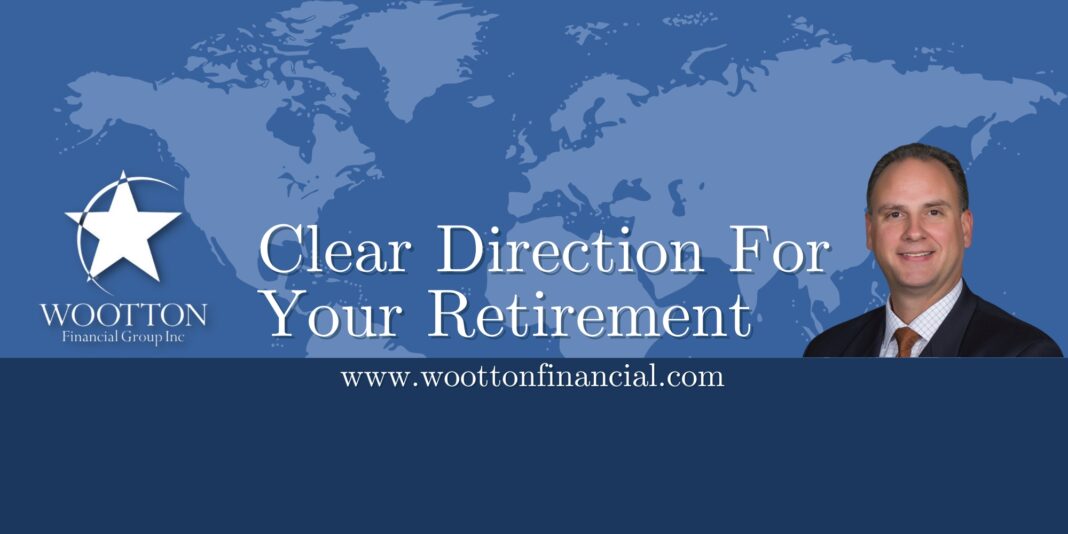Preparing for Retirement has Changed – Have you?
It’s a hot summer in Texas right now. I mean, it’s real hot and the humidity doesn’t help. I hope you’re staying safe and cool dear reader. This week, as I was recovering from a possible heat stroke brought on by walking from the parking lot to my office, I came across a couple of very interesting articles both written by the financial publication, Bloomberg News.
The first was an article referencing a survey done by Charles Schwab. Essentially, the survey found that workers are finding it harder to save for retirement even as the amount they need to retire keeps rising.
The survey showed that the average retirement savings target in the U.S. is now $1.8 million. Of 1,000 401(k) participants surveyed, nearly 80% said inflation and market volatility were making it difficult to save more and 36% said they were already planning on retiring later than expected. Furthermore, only 37% think it’s “very likely” they’ll reach their goal. This is down from 53% in 2021 illustrating just how frustrated the average investor has become and how market and economic conditions affect investor psyche.
The second article was about bonds and how they are used to hedge or protect your equity (stock based) positions in your portfolio. The summation of the article is that it isn’t working. Anyone who recalls 2022 knows that to be true.
Most of you have in the past and are likely now utilizing this approach. A popular example is the 60/40 buy, hold and hope portfolio referred to as the balanced portfolio. 60% stocks and 40% bonds (or some variation thereof based on your age). Bonds are supposed to be negatively correlated to stocks meaning when there’s a drop in the equity holdings you have, bonds should rally and thus reduce the volatility (loss) of your portfolio. That didn’t work out so well last year did it?
Unfortunately, with the triple whammy of a government plan to boost bond sales, Fitch and Moody then downgrading that U.S. sovereign debt and the private job sector continuing to be stronger-than-expected, bonds are struggling to say the least. In fact, bonds have not been this closely correlated (behaving the same) to equities since 1996.
So, what do these articles have to do with the title of this article you’re reading? Well, if you think about it, it’s quite simple by deduction. There has been a way of saving, investing and distributing retirement funds (3 of the five pieces of our retirement puzzle) for quite a while. While saving is pretty straightforward (aside from tax considerations and saving early and aggressive), distribution and especially investing has changed dramatically over the last 20 years or so. The question is, have you changed with it? Are you planning and adjusting your plan to account for the ever-changing economic and investment landscape?
For example, on the investment front, if we know that markets and leaders in those markets are constantly in flux and changing based on various economic factors, why would we buy and hold a scattered selection of investments (that rarely change) in the hope they go up over time (buy, hold and hope)? This is essentially a coin flip and is based on one or more faulty academic theories (like modern portfolio theory) that, unfortunately, permeates the lion’s share of financial institutions and advisors. The worst thing about this approach is its cavalier attitude toward massive drawdown events. Have you heard this one, “I know you’re down 30% but just hold on it’ll come back”. No one can make that statement with certainty, no one can see the future! You want to bet your life savings on it? I thought past performance was no guarantee of future results! Sounds like someone talking out of both sides of their mouth.
Perhaps consider a risk managed investment strategy that is more active and tactical. Not based on predictions of what might be or academic theories of what should be but based on what actually IS happening mathematically in the markets now. One that is constantly evaluating asset classes and sectors over varying time frames for best performance potential and adjusting to those areas as leaders ebb and flow. One that isn’t afraid to exit markets, adjust equity and bond weightings and even go to cash when it’s necessary. We refer to this as an Advance and Protect strategy rather than buy, hold and hope.
Retirement preparation has changed. Retirement Income distribution has changed. It’s possible to get income that is absent market risk and is safer and guaranteed. As just described, Investing has changed. When are you going to change? Let us help!
I hope this is helpful to your retirement journey. Call us, come see us or visit us at www.woottonfinancial.com, we’d love the opportunity to help address your questions and concerns and provide you Clear Direction for Your Retirement®.
 Investment Advisory services offered through Game Plan Advisors, Inc., a registered investment advisor. Insurance services offered through Wootton Financial Group, Inc. Game Plan Advisors, Inc. and Wootton Financial Group, Inc. are affiliated through common ownership. Neither Game Plan Advisors, Inc. nor Wootton Financial Group, Inc. offer legal or tax advice. Please consult the appropriate professional regarding your individual circumstance. Not associated with or endorsed by the Social Security Administration or any other government agency.
Investment Advisory services offered through Game Plan Advisors, Inc., a registered investment advisor. Insurance services offered through Wootton Financial Group, Inc. Game Plan Advisors, Inc. and Wootton Financial Group, Inc. are affiliated through common ownership. Neither Game Plan Advisors, Inc. nor Wootton Financial Group, Inc. offer legal or tax advice. Please consult the appropriate professional regarding your individual circumstance. Not associated with or endorsed by the Social Security Administration or any other government agency.
Fixed Annuities are long term insurance contacts and there is a surrender charge imposed generally during the first 5 to 7 years that you own the annuity contract. Withdrawals prior to age 59-1/2 may result in a 10% IRS tax penalty, in addition to any ordinary income tax. Any guarantees of the annuity are backed by the financial strength of the underlying insurance company.















